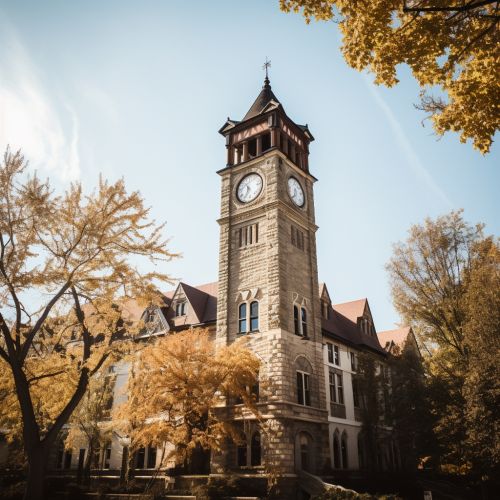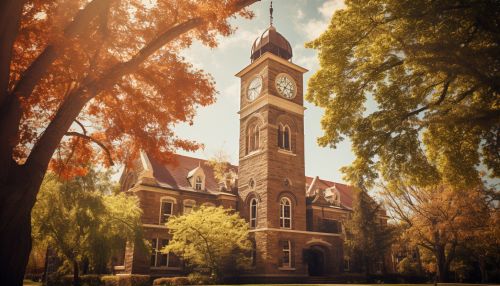August Kundt
Early Life and Education
August Kundt was born on November 18, 1839, in Schwerin, Germany. He was the son of a prosperous merchant. Kundt's early education was at the Gymnasium in Schwerin. He later attended the University of Leipzig and the University of Marburg, where he studied physics under the guidance of Christian Doppler and Hermann Knoblauch.


Career
In 1864, Kundt moved to the University of Heidelberg where he worked as an assistant to Robert Bunsen. He was appointed extraordinary professor of physics at Heidelberg in 1867. In 1868, he accepted a position at the University of Zurich as a full professor. Kundt's research during this period was primarily focused on the study of light, sound, and gases.
In 1872, Kundt moved to the University of Strasbourg, where he was appointed as a professor of experimental physics and director of the physics institute. He remained at Strasbourg until 1888, when he was appointed to the chair of physics at the University of Berlin. Kundt held this position until his death in 1894.
Contributions to Physics
Kundt made significant contributions to the field of experimental physics, particularly in the study of light and sound. He is best known for his invention of the Kundt's Tube, a device used to measure the speed of sound in gases and solids. The Kundt's Tube is still used in physics education today.
Kundt also made significant contributions to the study of light. He developed a method for determining the refractive indices of gases by observing the interference of light waves. This work led to the discovery of what is now known as Kundt's Law, which states that the refractive index of a gas is equal to its density relative to the density of air.


Later Life and Legacy
Kundt's health began to decline in the late 1880s, and he retired from his position at the University of Berlin in 1893. He died on May 21, 1894, in Israelsdorf, a suburb of Lübeck.
Kundt's contributions to the field of physics have had a lasting impact. His methods for measuring the speed of sound and the refractive indices of gases are still used in physics education and research today. The Kundt's Tube and Kundt's Law are named in his honor.
